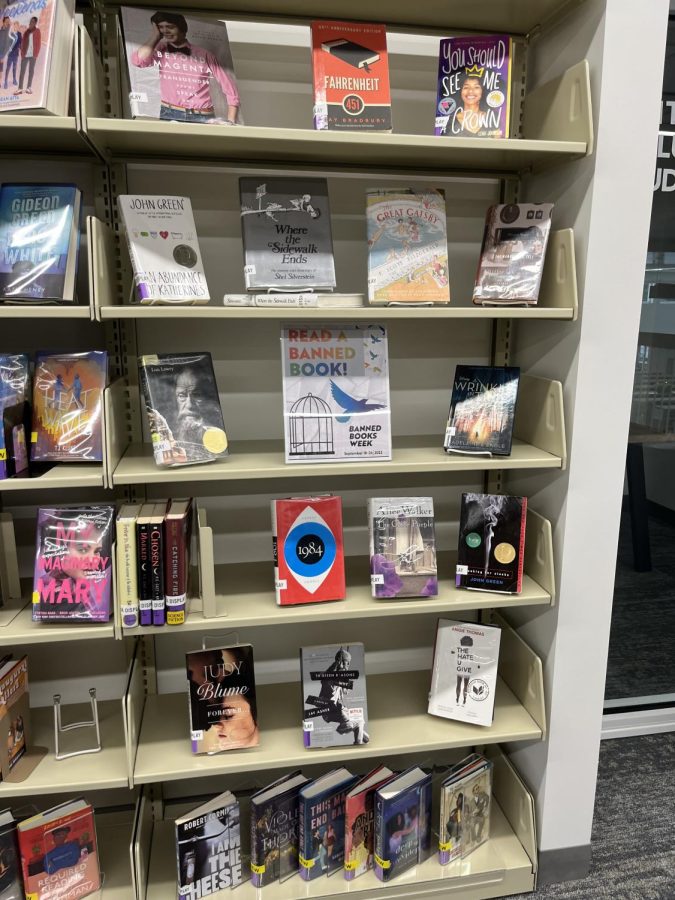“BANNED BOOKS WEEK” HAS A “RENEWED” MEANING
Some of the books on “the banned books” list are on display at the public library.
October 6, 2022
Banned Book Week is annual celebration held between September 18 and September 24. The purpose this week is to bring awareness to books that have been banned and challenged across the United States.
Many libraries across the country have put up displays for the week, including the St. Charles Public library. In the young adult section, some of the books featured were To Kill A Mockingbird by Harper Lee and 1984 by George Or- well. Both books are novels featured in D303’s English Language Arts curriculum.
Brandon Buckley, the youth coordinator at the St. Charles Public Library said, “Censoring or banning books limits speech and ideas… you can decide what you read, but you don’t get to decide what someone else reads.”
Some members of the St. Charles community have stocked Little Free Libraries with banned books in order to celebrate the week and bring awareness to the bans.
In 2021, the top three most challenged books were Gender Queer by Maia Kobabe, Lawn Boy by Jonathan Evison, and All Boys Aren’t Blue by George M. Johnson.
These books were challenged for reasons such as LGBTQIA+ content and profanity, as stated by the American Library Association.
“It is incredibly important to shine a spotlight on increased efforts to ban books. There has been a significant uptick of groups and individuals trying to get books removed from bookstores, public libraries, and school libraries,” Buckley said. The significance of Banned Book Week is renewed every time someone attempts to censor books.



